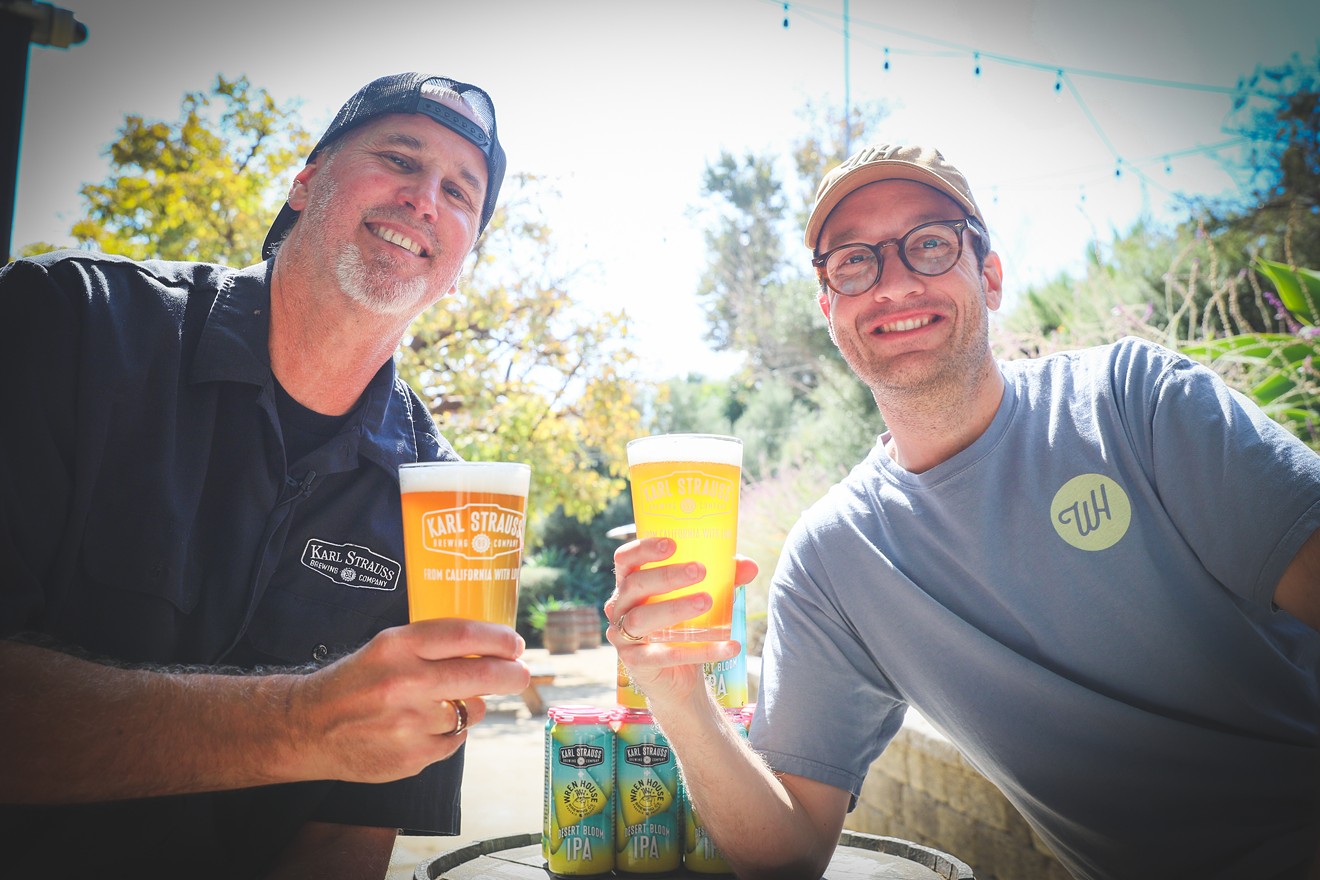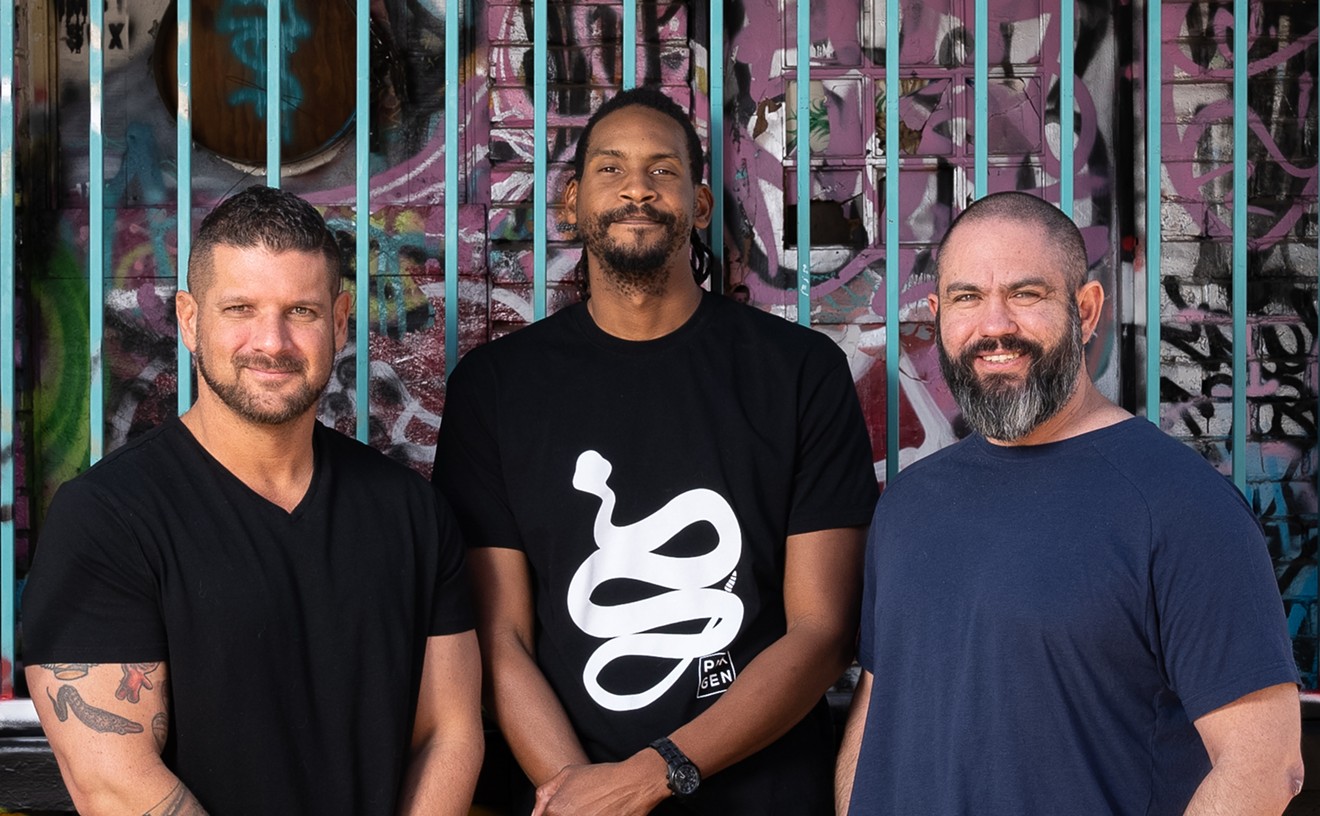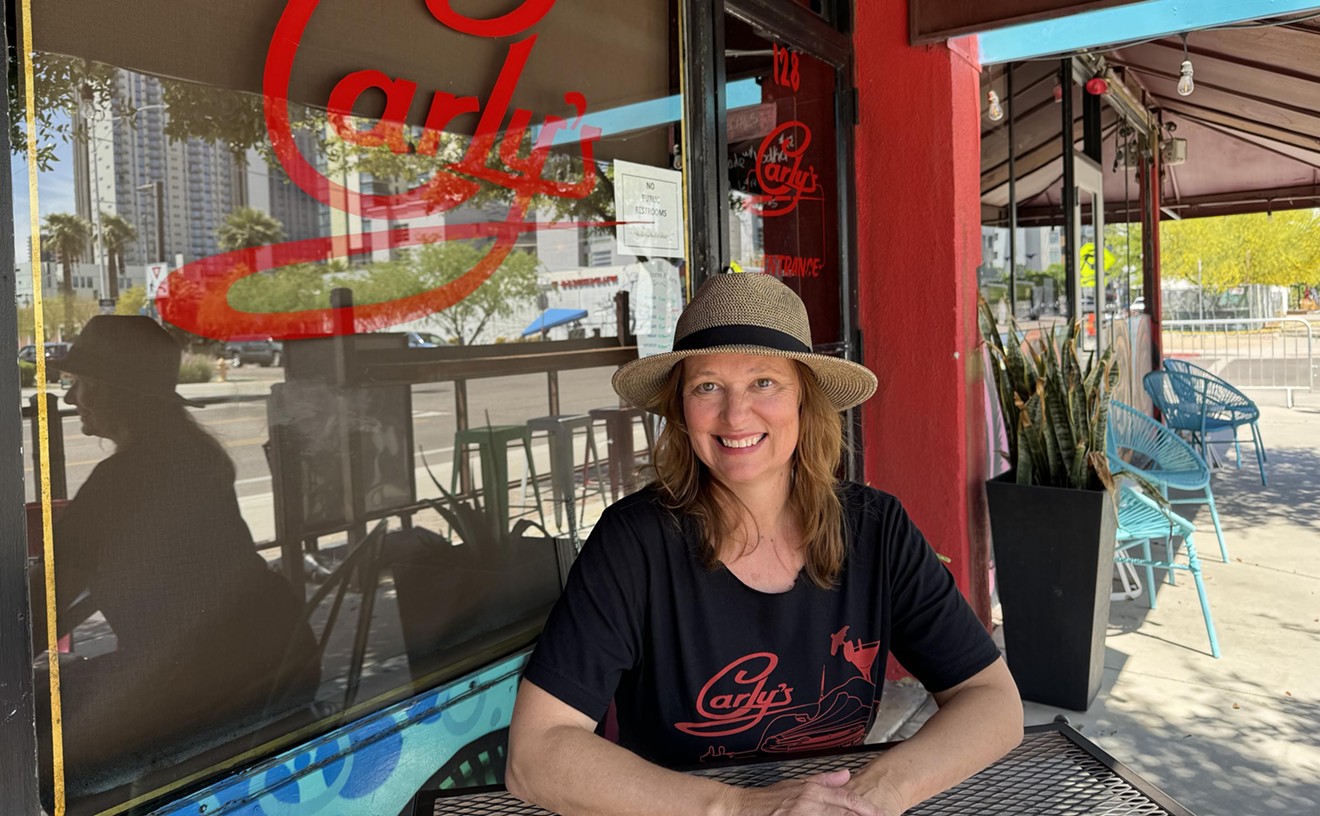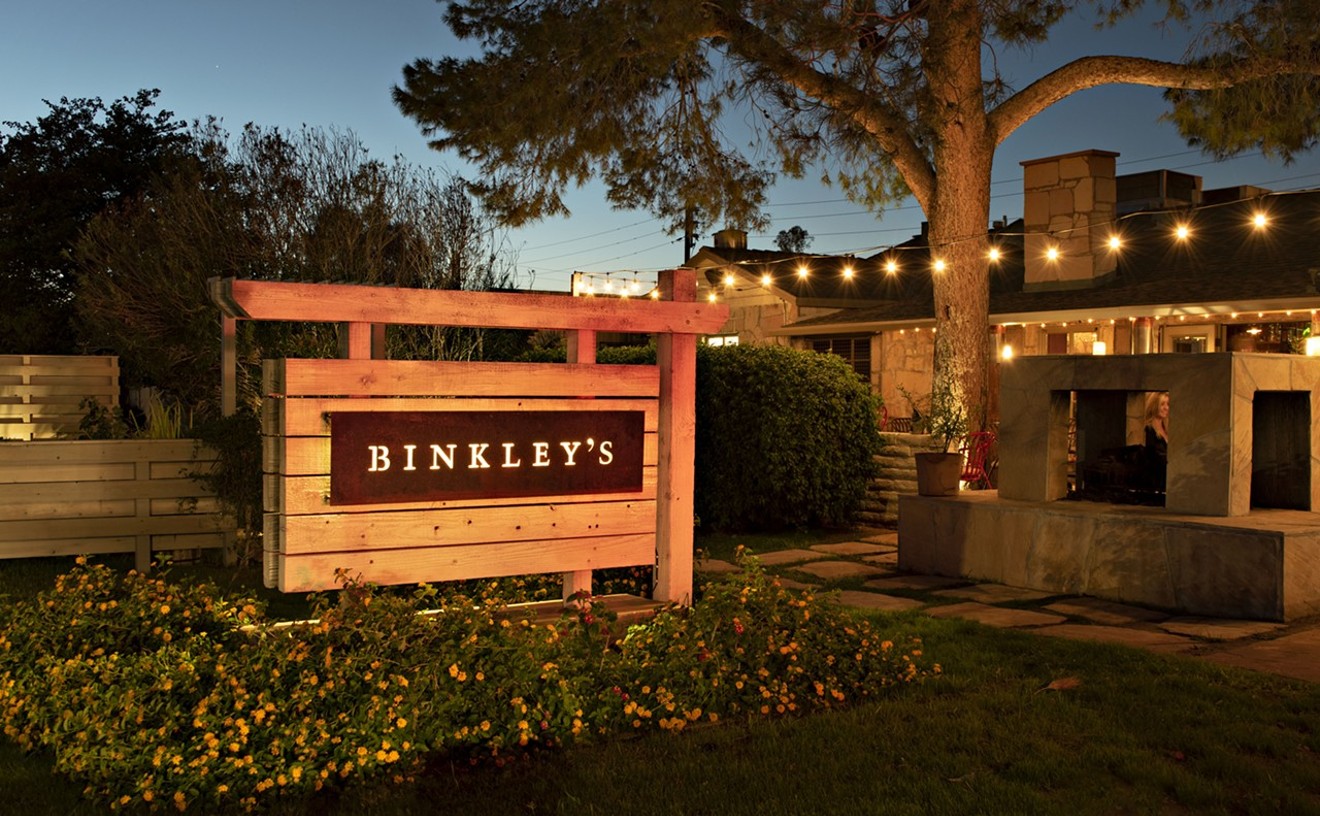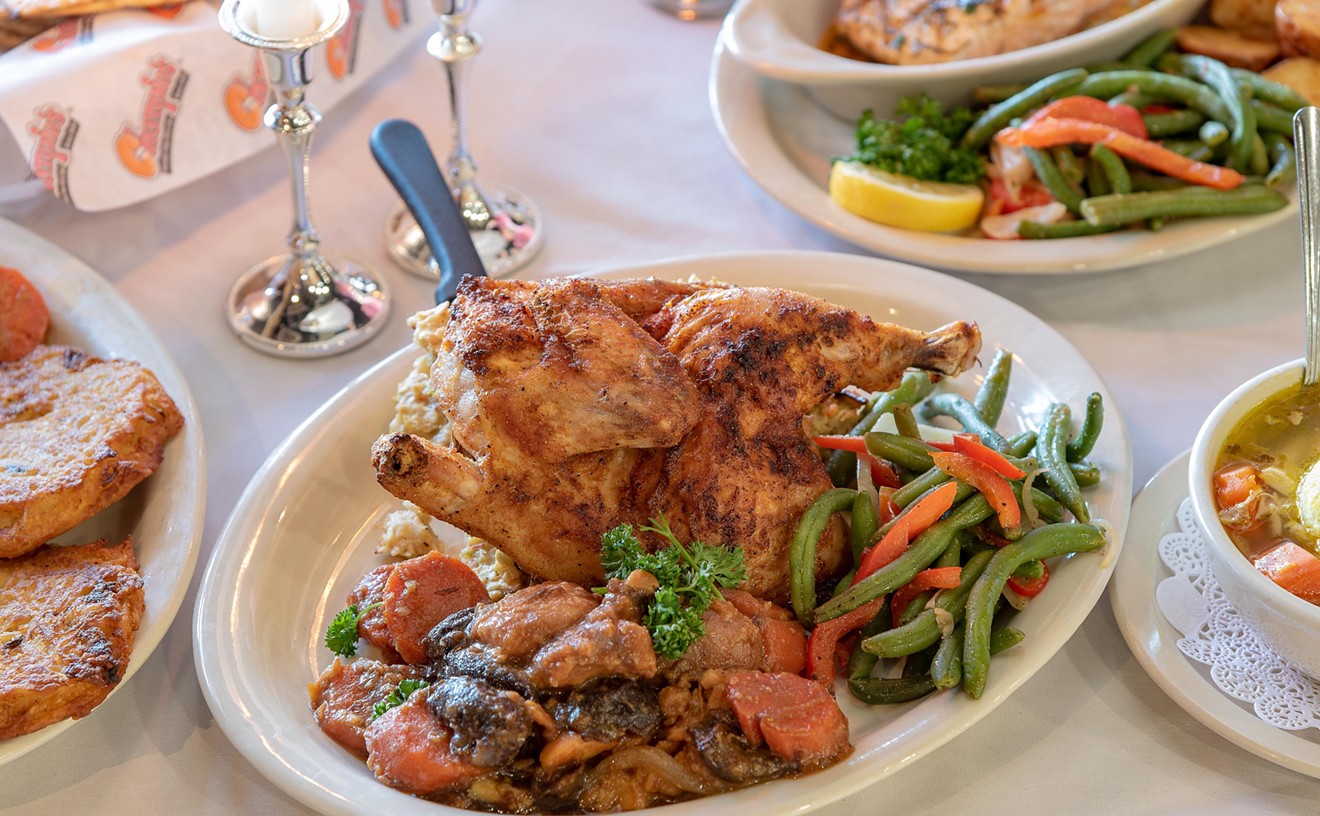But what, exactly, does that mean? How do collaborations come about? Who decides what’s in the beer? How do they serve the collaborators, consumers, and community?
Beer collaborations or “collabs” are generally cross-promotions between breweries, fashion brands, foods, sports teams, charities — pretty much anything. The amount of work ranges from a quick, “Sure, let’s do it” to dozens of emails back and forth to decide everything from which style of beer will be made to what the label will look like.
When breweries do collabs, “it’s beneficial for both of us,” says Zach Fowle, head of marketing for Arizona Wilderness Brewing Co. “We’re reaching groups we might not necessarily reach within our main customer base and we’re telling our story to people who may not have heard it before.” And it lets breweries spread the word about beers, businesses, or causes they like and support.
Collabs generally break down into three types: A brewery promoting awareness of a nonprofit and often donating a portion of the proceeds, a brewery joining marketing forces with a non-beer business, or two breweries working hand-in-hand on a unique brew. Although a nonprofit or business sometimes has a say in the type of beer brewed (lager, IPA, stout, etc.), the final flavor profile is up to the brewers.

Sue Rigler (left), owner of Hundred Mile Brewing Co., poses with Billie McGovern at a fundraiser for the Arizona chapter of the Pink Boots Society.
Hundred Mile Brewing Co.
“Any brewery in the world can participate in a Pink Boots brew,” says Sue Rigler, who’s been involved with the group for six years, long before she opened Hundred Mile Brewing Co. in Tempe in late 2022. “I’m super excited to have a brew day of my own,” she says, adding that her Pink Boots brew will be released in early April.
Some breweries give $1 a pint to the cause; others a flat donation. Half of the funds raised by the Pink Boots Society collab go to the local chapter and half to the parent organization.
Rigler says it’s great for women in the industry because “we get to travel and we get to learn.” She attended an educational retreat where she learned more about fermentation and other aspects of brewing. But the bulk of collabs with nonprofits benefit a bevy of causes beyond the beverage industry itself.

Tyler Smith opened Kitsune Brewing Co. in October 2022. His first collaboration at his own location was to benefit Black Girls Who Code during Black History Month.
Kitsune Brewing Co.
Since opening his own location in north Phoenix, Smith created a beer called Know History for Black History Month in February to benefit Black Girls CODE. When brewers choose a cause, he says, “it’s something that means something to us in our hearts. It always feels like it’s genuine and organic.”
In an on-brand collab, Arizona Wilderness made a "Superb Owl" beer in February with the Audubon Society as a wink to the big game. It’s also created beers to benefit the Arizona Trail Association, Equality Maricopa (which provides scholarships to LGBTQ youth), the MS Society, and the Pat Tillman Foundation. The brewery does between 20 and 30 collabs each year.

Arizo[na], Arizona Wilderness Brewing Co.'s non-alcoholic IPA , raised funds for the Arizona Trail Association.
Arizona Wilderness Brewing Co.
“We definitely encourage our staff to bring their own personal stories to the brewery,” says Drew Pool, co-owner of Wren House Brewing Co. “Oftentimes we’ll get wind of an organization or cause from our staff — something that they’re passionate about and something they’re involved in.”
The amount donated from a collab varies based on the size of the brewery. Smaller breweries might raise $500, while larger ones might give $2,500 or more.
However, it’s not just about the money — it’s about raising awareness. When Wren House does a collab, it publicizes that other cause, business, or brand to its nearly 30,000 followers on Instagram. Fowle of Arizona Wilderness says collaborators are introduced to their 125,000 followers across Facebook, Instagram, and Twitter.
Brewery-to-brewery collabs, meanwhile, offer brewers the chance to widen the market, enjoy camaraderie, learn from each other, and work together on new creations.
“It’s reconnecting with some of our closest friends in the industry trying to create a delicious beer,” says Dylan DeMiguel, co-owner and director of sales for The Shop Beer Co.
Collabs also involve “techniques and tricks of the trade that maybe we share with one another to make both of our breweries a little bit better,” Fowle says, such as discussing new styles of hops, how long to age a certain beer, or how to treat different yeasts.
Some less scrupulous breweries simply slap their name on a can without being involved, Fowle mentions, adding that he believes “if you’re wanting to put your name on another brewery’s label, the brewery has to go out and spend time with another brewery and be a part of the experience of making the beer.”
Because a collaborative beer is marketed to two customer bases instead of one, brewers can get a little more “wacky,” says Pool of Wren House Brewing Co. “It’s a way to expose devoted drinkers to new things.”
For instance, Wren House joined forces with Superstition Meadery to create Nojoch Mul, a mole mead made with 100 ingredients. And it worked with North Park Beer Co. out of San Diego to make Wren Park, a combination of both breweries’ gold medal-winning IPAs, Spellbinder and Art is Hard.
Smith of Kitsune Brewing Co. says it’s also beneficial for larger breweries to partner with little ones like his because it’s not as big of a risk when making smaller batches. “If it doesn’t come out right, we’re wasting five barrels and they’re wasting 150, which is a bigger pill to swallow,” he notes.
Collabs offer a chance for brewery staff to work with people they admire, too. DeMiguel says The Shop Beer Co. was excited to work with Pizza Port Brewing Co. out of Carlsbad, California, on Tickle Fight because “they’re the cool older brother that every brewery loves. We got to work with the people that created some of our favorite products and some of our favorite branding.”

The Shop Beer Co. collaborated with Tops Liquors to make three imperial stouts aged in different bourbon barrels to honor the store's three generations of family ownership.
The Shop Beer Co.
DeMiguel says they got talking with Greg Eccles, owner and partner at Tops Liquors, about hand-selected barrels of bourbon and did a collab using their empty barrels. The Shop Beer Co. aged imperial stouts in three different barrels — Elijah Craig, Weller, and Blanton’s — for 23 months as an homage to the three generations of the Eccles family, which has been a vanguard in the craft beer business in the Valley.
And Wren House recently collaborated with JL Patisserie and Zak’s Chocolate to make a beer inspired by JL Patisserie’s chocolate turtle croissants.
“With Zak’s Chocolate, we’re talking with him about flavor profiles we want to target,” Pool says. “He’ll source … some cacao for us for that beer specifically. We definitely leverage each other’s contacts to do that.”
Pool summed up the concept of collabs by saying, “It does take a ton of work from everybody, from the brew team to the management team to the collaborators... [but] I think it’s an awesome way to make an impact in the community and raise awareness to so many awesome things going on.”

